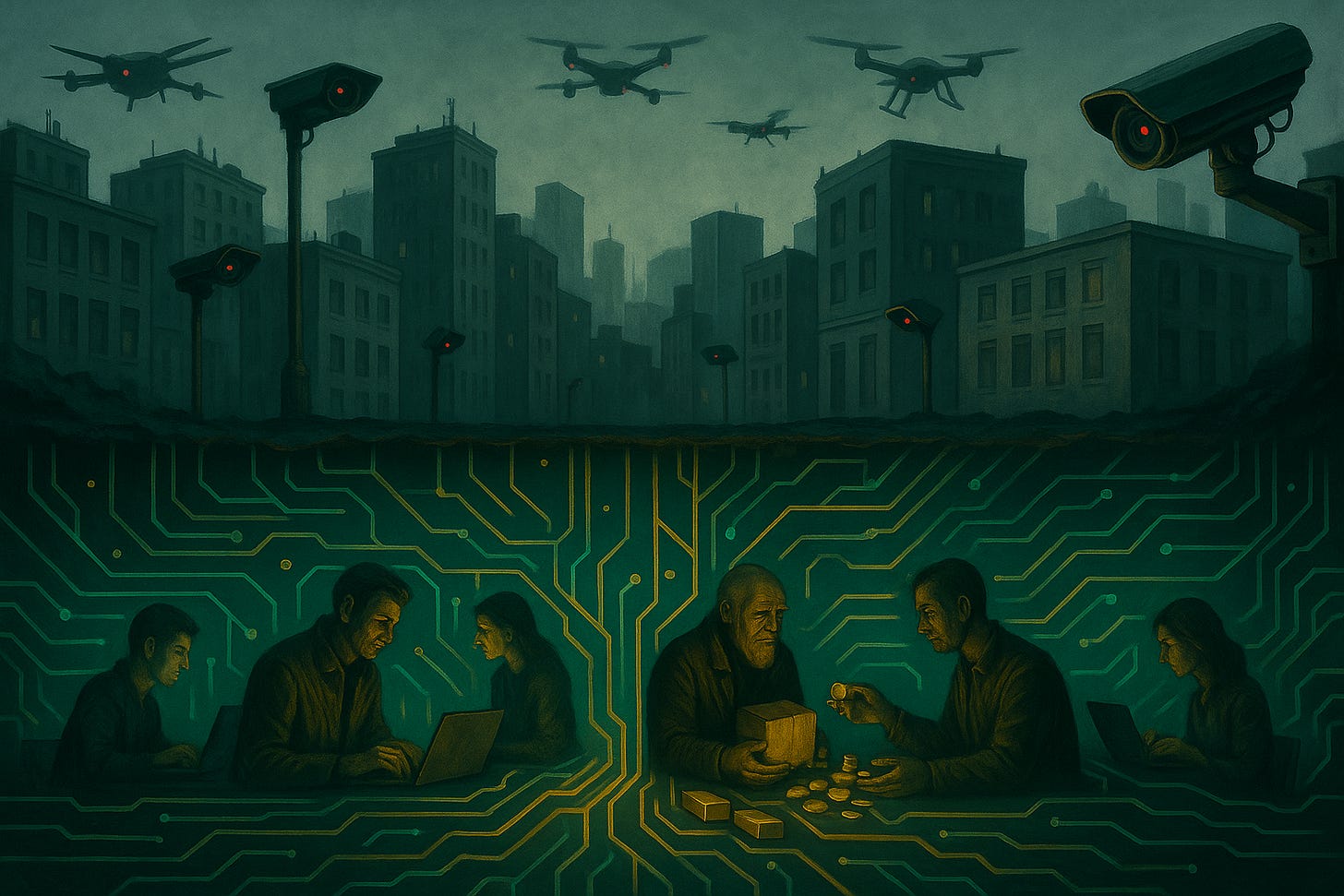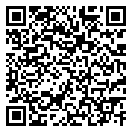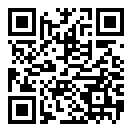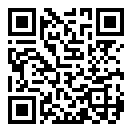Parallel Polis Reborn
Freeing the Market through Decentralized Technologies
In a surveilled society where property rights are undermined and truth is distorted, freedom demands building alternatives beyond the regime’s reach.
Within the Soviet bloc, Václav Benda advocated for the creation of an invisible society as a form of resistance. To combat the atomization of the citizenry, he called for the construction of parallel structures. As he explained in a response published in Civic Freedom in Central Europe: Voices from Czechoslovakia:
To tear down or corrode these miniature iron curtains, to break through the communications and social blockade, to return to truth and justice, to a meaningful order of values, to value once more the inalienability of human dignity and the necessity for a sense of human community in mutual love and responsibility—these, in my opinion, are the present goals of the parallel polis.
Through the Charter 77 movement, Benda’s vision came to life. Together with Václav Havel, fellow dissident and future president of Czechoslovakia, he emphasized the power of “living in truth”—the simple yet radical act of refusing to participate in the regime’s lies. Charter 77 organized parallel educational structures, fostered a second culture through the performance of banned plays, and built underground networks that published forbidden books and journals. Though Charter 77 made cultural strides, Benda acknowledged the daunting challenge of bypassing the command-and-control economy in The Parallel Polis:
At the moment, the tasks facing us in the parallel economy are unimaginable, but though our opportunities are limited, the need to exploit them is urgent. The regime treats the economy as a key means of arbitrarily manipulating citizens and, at the same time, it regulates it as strictly as possible.
As in Czechoslovakia under the communist regime, parallel structures offer citizens in “liberal democracies” a way to resist the creeping authoritarianism unfolding before our eyes. From freedom of speech to freedom of contract, our civil liberties are being eroded by paternalistic bureaucrats and self-serving, power-mongering politicians. Countries that once championed classical liberalism have traded freedoms for dependency and sacrificed liberty for the illusion of safety.
In resisting authoritarianism, parallel structures take many forms. Among these, homeschooling movements have long offered families an escape from state-run education systems that teach conformity over critical thinking. Today, technology allows these alternatives to scale exponentially: educational courses and lectures are freely accessible online, and curricula such as the Ron Paul Liberty Classroom provide invaluable resources for parents. Free-speech-oriented platforms such as X, Telegram, Rumble, and Substack have become homes for dissident voices. While “liberal democracies” have been forced to tolerate resistance on these platforms and accept that they no longer fully control the narrative, they will never willingly relinquish their monopoly on money—the spigot for the welfare-warfare State.
Among the State’s many domains of control, its economic interventions stand out for their scope and destructiveness. It begins with monetary and fiscal policies that erode the purchasing power of fiat currencies and continues with legal tender laws that compel citizens to accept these devaluing pieces of paper as money. Beyond that, governments intrude on voluntary exchange through an ever-growing collection of laws and regulations, turning peaceful transactions into crimes.
Contraband is whatever the State declares. In the US, farmers are prohibited from selling raw milk across state lines. Across the EU, only fruits, vegetables, and seed varieties registered in the official catalog can be marketed. Amid COVID hysteria, Australia restricted prescriptions of otherwise commonly used drugs like Ivermectin. Should Central Bank Digital Currencies (CBDCs) gain widespread adoption, the State could freeze funds tied to “unacceptable” goods or services—or censor the transactions of anyone who dares question its authority.
The risks are real, but so are the tools of resistance. Thanks to cryptography, blockchain technology, and the rise of Web 3.0, the foundations of a permissionless, trustless parallel economy are in place. Unshackled from reckless money printing, regulatory interference, and censorship, these technologies open the door to unprecedented human flourishing within a truly free market.
Cryptocurrencies
By solving the Byzantine Generals Problem, Bitcoin (BTC) transformed the monetary landscape. Built on an immutable distributed ledger, BTC minimized double-spending risks and demonstrated that cryptocurrencies can fulfill the core functions of money. Algorithmic scarcity, enforced by a secure protocol, turned BTC into digital gold. Unlike fiat currencies, whose value is continuously inflated away to serve political ends, BTC’s hard cap of 21 million preserves purchasing power.
However, for a parallel economy to truly resist pressure from the State, privacy is essential. Governments have actively suppressed privacy technologies, relentlessly targeting developers and enacting anti-money laundering (AML) and Know Your Customer (KYC) regulations that discourage the use of mixing services. As a medium of exchange, transparent ledgers like those used by BTC and stablecoins expose users to surveillance and potential censorship.
Monero (XMR), by contrast, stands at the forefront of private digital cash. Using advanced cryptography to conceal the sender, receiver, and transaction amount, XMR has been demonized and delisted from nearly all centralized exchanges. Nevertheless, it has proven resilient thanks to innovations like atomic swaps and decentralized exchanges, which enable users to trade XMR for other crypto-assets in a permissionless fashion.
Digital Identity
In Web 2.0, our data was controlled by governments and platforms. Information was siloed, and trust was curated by individual websites and credit bureaus—each one a honeypot for hackers seeking personal data. The best way to prevent abuse is by keeping our information out of others’ hands to begin with.
Web 3.0 flips the script, putting the user in control. Data is secured by private keys held in digital wallets. Personal information is no longer stored on centralized servers, reducing the risk of breaches. User-owned wallets set the stage for Self-Sovereign Identity (SSI), a system that allows individuals to receive tamper-proof, verifiable credentials and voluntarily disclose personal information while safeguarding privacy. From government programs like the European Digital Identity (EuDI) and Vietnam’s NDAChain to decentralized efforts such as WorldCoin and Human Passport, a variety of digital identity solutions are being developed. However, only solutions that grant users total control of their digital identity while preserving privacy can underpin a free, parallel, voluntary economy.
Zero-knowledge proofs (ZKPs) are a critical component of SSI. These cryptographic protocols allow users to prove something without revealing the underlying data. Imagine proving that you can solve a maze without showing the path. A real-world application is age verification: instead of handing a bouncer an ID that reveals a wealth of sensitive information, a ZKP-enabled app could simply confirm that you’re of drinking age with a green check mark—and nothing more.
Decentralized finance (DeFi) already enables anonymous financial activity, but when combined with SSIs and ZKPs, trust can be fostered where it’s otherwise lacking. Lenders could issue loans and borrowers could access capital by proving creditworthiness, without invasive disclosures. Smart contracts allow parties to interact without intermediaries by automatically executing agreements once predefined conditions are met. While preserving privacy, these technologies could unlock new frontiers for collaboration and entrepreneurship.
Trust and Reputation in E-commerce
In an anonymous, cross-border market, trust presents a challenge. Trust acts as the lubricant for exchange, while reputation reflects a history of trustworthiness. When trust is absent, transaction costs rise. But when parties can reduce fear of loss, barriers to entry come down, and trade flourishes.
A market-based solution could involve independent domain-specific entities that assess trustworthiness by compiling and weighing data points. Using verifiable on-chain data alongside voluntary disclosures through ZKPs, consumer and seller reputations could be reliably evaluated. For instance, a business could cryptographically demonstrate that they’ve met or exceeded certain performance thresholds (e.g., $X in sales or Y% of successful transactions) without disclosing detailed transaction records.
As in other industries, private rating and reputation agencies would likely arise through spontaneous order. If there’s a market, multiple agencies will compete. For example, credit bureaus like Equifax, Experian, and TransUnion—though heavily regulated—assess creditworthiness for individuals and businesses alike. In the collectibles industry, organizations such as PSA and Beckett grade memorabilia and authenticate autographs, helping maintain trust between buyers and sellers.
Moreover, when users control their own data, e-commerce platforms become interoperable. A seller on Amazon, for example, could seamlessly carry their reputation over to eBay or any other marketplace, centralized or decentralized. By reducing friction and unifying fragmented systems, global trade becomes more efficient. Markets thrive not through government mandates but on sound money and trust that make voluntary exchange possible.
Conclusion
The freer the market, the more prosperous the people. As Ludwig von Mises explained, “The development of capitalism consists of everyone’s having the right to serve the customer better and/or more cheaply.”
Decentralized networks and blockchains enable the creation of parallel economies that span the globe. By allowing resources to be allocated more efficiently, these systems represent a natural evolution of capitalism. Peer-to-peer marketplaces, decentralized reputation systems, SSI, and private digital cash empower individuals to transact securely and voluntarily. Many of these innovations are already taking shape; others remain under active development. Together, these technologies form the foundations of a decentralized revolution—one that could pave the way toward the freest of markets, where access is permissionless, privacy is woven into every protocol, and the State becomes nothing more than an afterthought.
All articles are free. If you find value in my writing, consider supporting it with a paid subscription or a crypto donation.
XMR: 8BFN1EyJCsqXUg2NxeYvjDJkajCcTjeMx1TCyF3ssyvHM3JhCfCxkLw6Bheo7zCLiZeyXTHHcQTJD5civHEgzwocH13FdSk
BTC: bc1qj9aqksvruyncnvf7pedafrmal6ffk9ujwauqgl
ETH: 0xE404A29Cb1129652dEDeaA6642B668B763d44FD4






